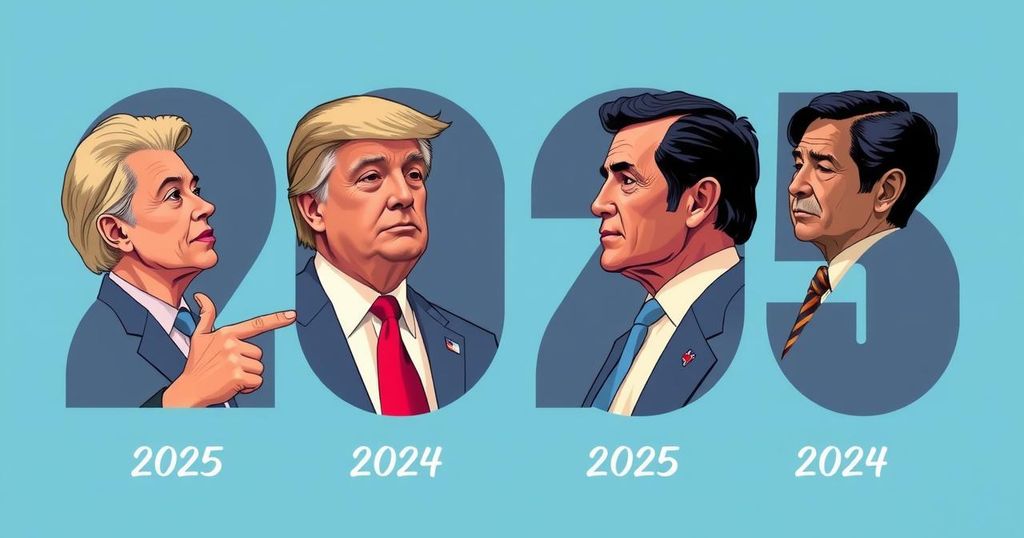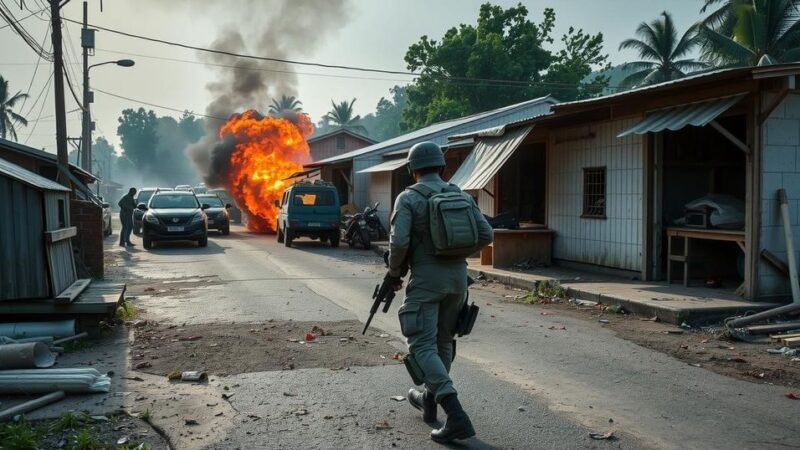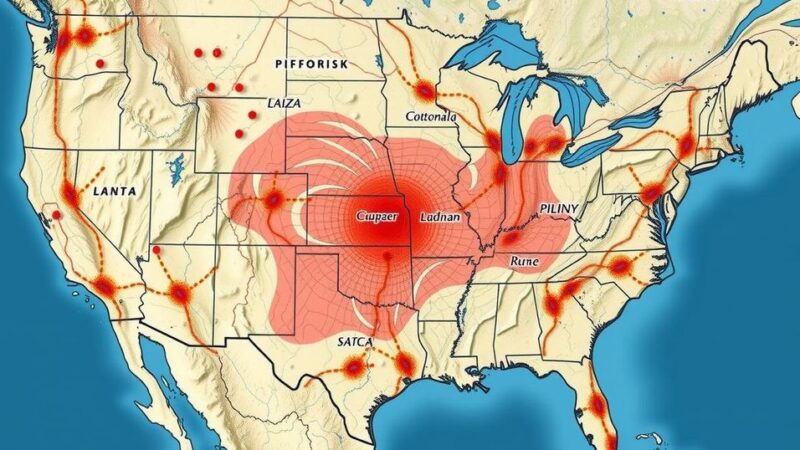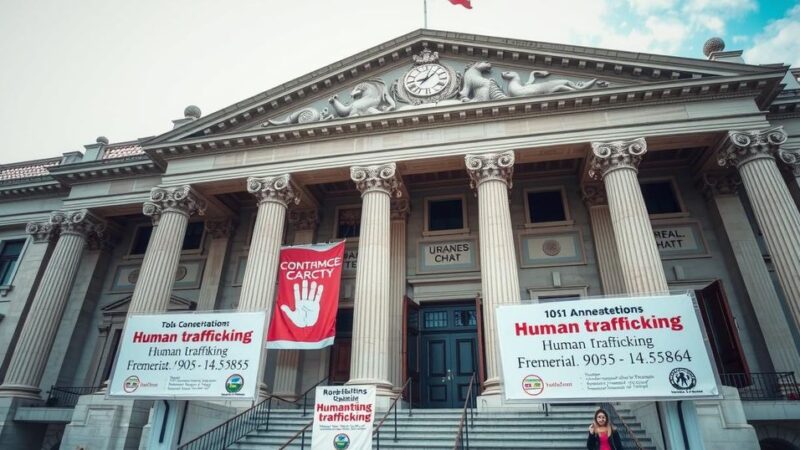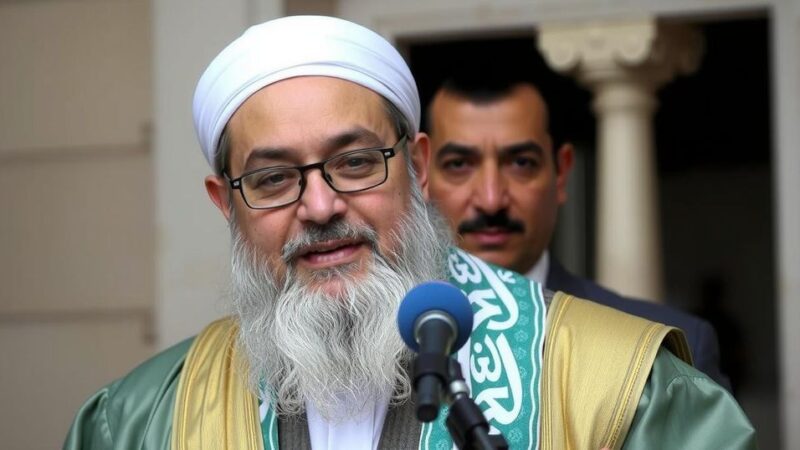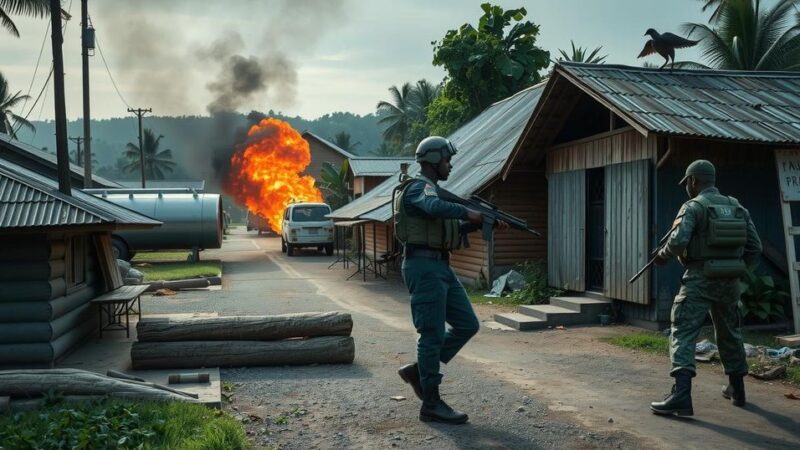The year 2025 will see significant elections in Belarus, Germany, the Philippines, Canada, and Chile, each confronting critical challenges such as economic difficulties, governance issues, and political tensions. These elections are expected to reflect ongoing trends in populism, government legitimacy, and electoral integrity.
As we approach the year 2025, several elections worldwide promise to wield significant influence over their respective political landscapes. Particularly noteworthy elections are set to occur in Belarus, Germany, the Philippines, Canada, and Chile. Although the global election calendar for 2025 cannot match the extensive participation seen in 2024, these five nations are slated to address pressing domestic issues, including economic challenges, political alliances, and questions regarding governance and civil liberties.
In Belarus, the upcoming presidential election on January 26 will see Alexander Lukashenko, the country’s long-standing authoritarian leader, vying for a seventh term. With no serious opposition candidates prepared to challenge him, the elections are expected to lack legitimacy, particularly in light of the repressive political climate and recent historical context marked by protests against election fraud.
In Germany, a snap federal election is anticipated on February 23 due to the collapse of the coalition government led by Chancellor Olaf Scholz. Multiple challenges, including the fallout from the war in Ukraine and economic stagnation, will shape the campaigns. Scholz’s position appears precarious, facing increasing vulnerability from both opposition parties and public discontent, further complicated by Germany’s constitutional limits on national debt.
The Philippine midterm elections on May 12 present a critical juncture for President Ferdinand Marcos Jr. These elections will not only test his influence over the political apparatus but will also impact his tumultuous relationship with the Vice President, Sara Duterte. Marcos’s ability to secure a majority in the Senate is vital for his political survival and future governance.
In Canada, an election prior to the mandated October 20, 2025 deadline is increasingly likely. Prime Minister Justin Trudeau is grappling with declining approval ratings and the potential collapse of his coalition government, creating a volatile political landscape. His primary political challenger, Conservative leader Pierre Poilievre, capitalizes on public dissatisfaction, particularly surrounding inflation and economic policies.
Finally, Chile’s presidential election is scheduled for November 16, 2025, following a challenging political period marked by social unrest and constitutional crises. While current laws preclude President Gabriel Boric from seeking re-election, the opposition is expected to gain significant momentum despite the ruling coalition’s unexpected performance in recent local elections.
Through these electoral contests, each nation will confront fundamental questions about governance, economic management, and the role of civil society amid rising populism and an increasingly polarized global environment.
The landscape of global elections in 2025 will unfold against a backdrop of ongoing economic and political challenges that are likely to shape the decisions made by voters. From the authoritarian grip in Belarus to the coalition complexities in Canada and Germany, to social conflicts in Latin American nations, each electoral event presents a unique set of issues tied to previous historical contexts and contemporary power dynamics. Moreover, these elections serve as critical referendums on current leadership and policies at a time when the balance of power and democratic principles are being tested worldwide.
In summation, the elections of 2025 in Belarus, Germany, the Philippines, Canada, and Chile are poised to play pivotal roles in shaping each country’s future. As they navigate a landscape marked by economic pressures, shifting alliances, and calls for reform, these electoral processes will provide insights into the current state of governance and the challenges of democratic representation worldwide. The outcomes will not only affect domestic policies but also have broader implications for international relations and the global political climate.
Original Source: cobbcountycourier.com

